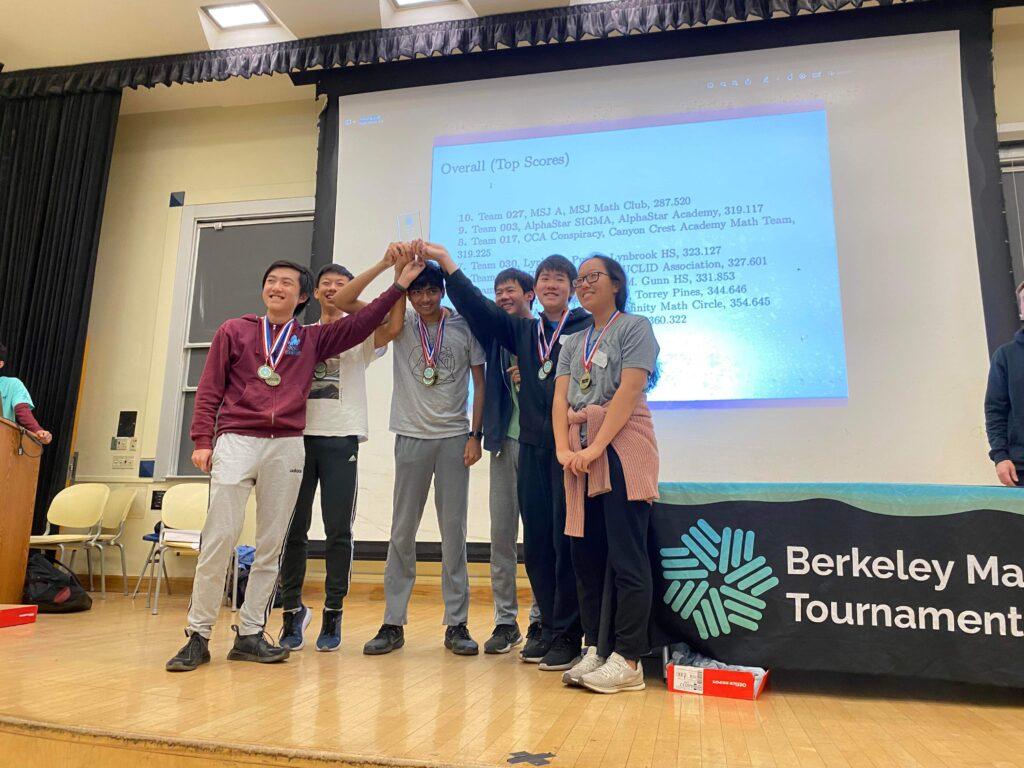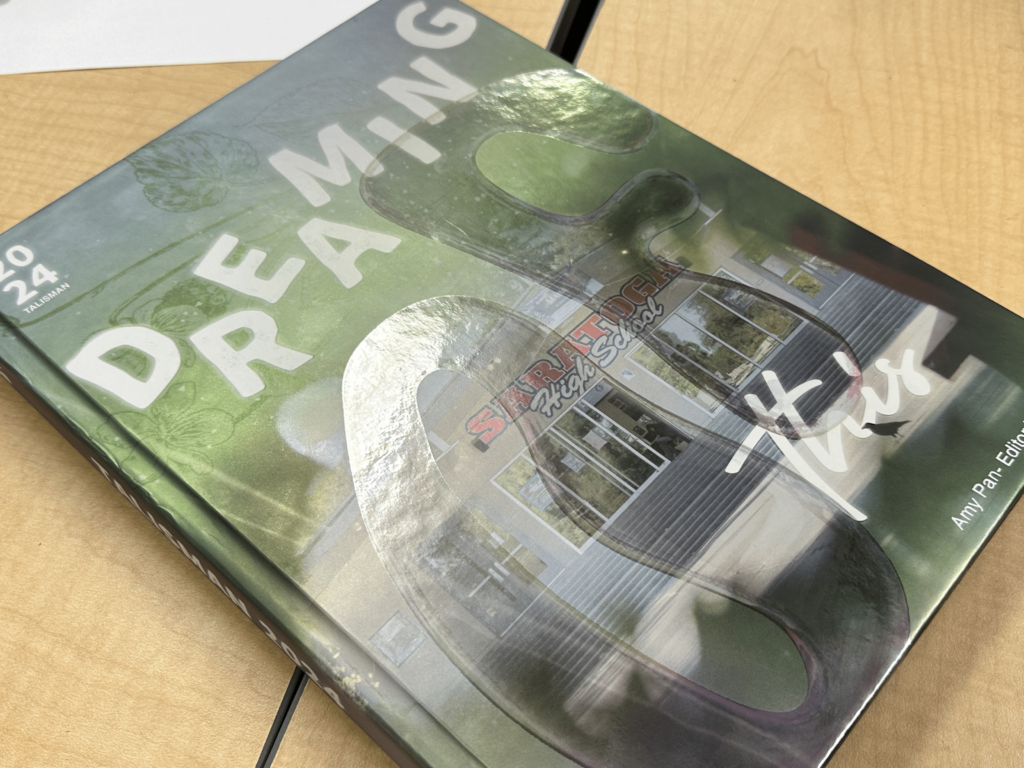As the clock ticked down during the last round of the Berkeley Math Tournament (BMT) held on Nov. 4 at UC Berkeley, senior Advaith Avadhanam swiftly retrieved a packet for his team, determined to help complete a final set of three questions. The live scoreboard, which had been present for the majority of the round, was hidden during the final 10 minutes to build suspense. Anxiety rippled through the team as they raced to crack the last few problems.
BMT, which takes place every year in November, is a high school team-based math competition. Three teams from the school attended the competition, named Saratoga 1, 2 and 3; Saratoga 1 managed to place second out of 125 teams, while Saratoga 2 and Saratoga 3 placed outside of the top 10 and did not receive a ranked placement.
Sophomore Lawson Wang, a member of Saratoga 1, said: “It was very unexpected and a pleasant surprise that we were able to snag [our 2nd place ranking], especially because there were strong East Coast teams there.”
Saratoga 1 consisted of sophomore Wang, juniors Alan Lu and Skyler Mao and seniors Avadhanam, Victoria Hu and Bryan Li; Saratoga 2 consisted of freshman Vivian Zhong, sophomores Vivian Lei, Ella Li and Emily Wu and juniors Alan Cai and Zitian Li; Saratoga 3 consisted of freshmen Arvin Hormati and Derek Wang and sophomores Nicole Hao, Parnika Kamath and Navya Rao.
To prepare for the tournament, the math club practiced past years’ individual exams and also ran a mock team-based guts round the Friday prior to the competition in the school’s library.
Total team scores for the tournament were determined via three weighted categories: power, guts and individual.
The 60-minute power round, one of the two team rounds, is where teams solve several multi-part proof questions based around a topic announced the day of the competition. These topics are typically higher math topics many students haven’t been exposed to, such as zero knowledge proofs, so they are given a packet of information along with the questions.
“I think our team was pretty fortunate because the topic was [zero knowledge proofs] and Bryan was doing research on the topic, which is really cool,” Lawson Wang said. “I feel like [power round] had an impact on me because seeing how my teammates did research-based math motivated me to become more interested in higher math too.”
The other team round is the guts round, which requires teams to solve sets of problems as fast as possible. Each team appoints a runner who submits and retrieves sets of questions for the team, which each contain three questions that increase in difficulty per set.
Sandwiched between the power and guts round are individual tests with five different topic options: a one-and-a-half hour long general test and four focus tests for algebra, calculus, discrete math (counting, number theory and probability) and geometry.
Each member within Saratoga’s teams selected either the general test or two individual testing categories that aligned with their strengths.
As a result, Saratoga 1 saw strong individual results that helped propel the team to its overall second place finish. In Geometry, Avadhanam placed first. In Algebra, Avadhanam placed second, Bryan Li seventh and Lawson Wang tenth. In Discrete, Hu, Mao and Lawson Wang placed eighth.
Saratoga 1 also made it onto the top 10 leaderboard for both team rounds, placing seventh in power and third in guts.
“In the power round, we didn’t perform too greatly but we clutched in the estimation section of the guts round and placed way higher than we were expecting,” Avadhanam said.
According to Avadhanam, the team achieved these rankings by using a strategy to avoid careless errors. He mentioned that while the team found questions to be easier near the beginning of the guts round, they still ensured consensus was reached between at least three teammates prior to placing an answer.
“We decided on a lot of ways to minimize the risk of messing up in the first few rounds since it can be disheartening to see yourself low in the live scoreboard,” Avadhanam said.
Once the questions grew in difficulty, the team shifted strategy toward splitting up the three questions between pairs to save time. These pairs were determined based on the subject tests they took, in order to maximize the use of everyone’s strengths.
The team felt the burden of meeting high expectations after placing first the previous year, and while they were initially skeptical of their abilities given the loss of strong seniors from the past year to graduation, they were ultimately satisfied by the final results.
In future years, Lawson Wang anticipates the teams to undergo big changes, including leader and member changes within the teams.
“As the current senior leaders graduate, the juniors will have to take up the leadership positions which will be a big change for the club, as well as the freshmen possibly rising up to team 1, which is uncommonly seen,” he said. “In the future, I hope we can stick together as a team, earn more trophies and have more fun.”



























